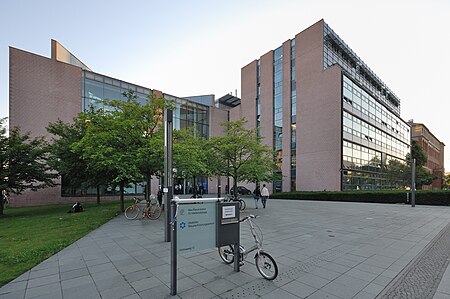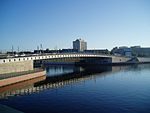Max Planck Institute for Infection Biology

The Max Planck Institute for Infection Biology (MPIIB) is a non-university research institute of the Max Planck Society located in the heart of Berlin in Berlin-Mitte. It was founded in 1993. Arturo Zychlinsky is currently the Managing Director. The MPIIB is divided into nine research groups, two partner groups and two Emeritus Groups of the founding director Stefan H. E. Kaufmann and the director emeritus Thomas F. Meyer. The department "Regulation in Infection Biology" headed by 2020 Nobel laureate Emmanuelle Charpentier was hived off as an independent research center in May 2018. The Max Planck Unit for the Science of Pathogens is now administratively independent of the Max Planck Institute for Infection Biology. In October 2019, Igor Iatsenko and Matthieu Domenech de Cellès established their research groups at the institute, Mark Cronan started his position as research group leader in March 2020. Silvia Portugal joined the institute in June 2020 as Lise Meitner Group Leader. Two more research groups where added in 2020, Felix M. Key joined in September and Olivia Majer in October, completing the reorganization of the Max Planck Institute for Infection Biology.
Excerpt from the Wikipedia article Max Planck Institute for Infection Biology (License: CC BY-SA 3.0, Authors, Images).Max Planck Institute for Infection Biology
Hufelandweg, Berlin Mitte
Geographical coordinates (GPS) Address Website Nearby Places Show on map
Geographical coordinates (GPS)
| Latitude | Longitude |
|---|---|
| N 52.525 ° | E 13.375277777778 ° |
Address
Campus Charité Mitte
Hufelandweg
10117 Berlin, Mitte
Germany
Open on Google Maps











